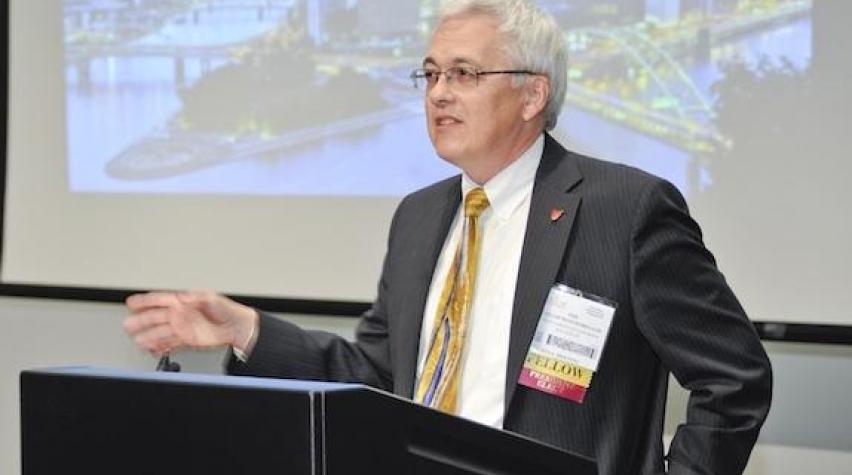
As I begin 2013 as AIChE’s president, I want to share my belief that we’re entering a new Golden Age of Chemical Engineering. Why is this a time for chemical engineering to shine? Consider what is happening:
- manufacturing’s shift to emphasize processes and properties
- the new abundance of hydrocarbon resources
- biology’s turning into a molecular science
- computing’s evolution into a cyberinfrastructure
- society’s need for the breadth and problem-solving approaches of chemical engineering.
I’ve been probing these ideas in a blog on our ChEnected website and have heard from members around the world that they see the same things.
What should we do to take advantage of this opportunity? I think a key aspect is to understand what binds us together as a profession.
What links us
I assert that, most basically, it is applying molecular sciences. That’s not only chemistry in a traditional sense, but biology and materials, too. If you’re doing chemical process control or patent law, for example, does that fit? Sure. Each engineering discipline derives from some domain of science, and applied molecular sciences is ours.
Of course, it’s more than that, too. Chemical engineering is especially focused on a systems approach because our first tool of choice is often writing balances on a system in terms of amounts of material or money or flowrates or energy.
Chemical engineering is not defined narrowly by the industries we work in, which are remarkably diverse. Oil, gas, and petrochemicals are key sectors for our profession, and the excitement about new opportunities there is high. At the same time, we have long records of achievement in pharma, polymers, food, nuclear power, environmental control, paper, and packaging. ChEs are also taking leading roles in new areas as diverse as tissue engineering, personalized medicine, nanotechnology, petascale computing, sustainability metrics, and microfluidics.
Chemical engineering is not only R&D and process engineering. We bring our skills to bear on management, finance, design, sales, technical service, testing, human resources, law, medicine, government, and space flight, as well.
To keep our profession strong, we must understand and embrace both our core expertise and our breadth, working with other disciplines to benefit society.
The year ahead
This should be a busy and upbeat year for the Institute. Our membership has stabilized and is beginning to increase again. Our classrooms are overflowing, and students are enthusiastic about the wide range of opportunities they have. AIChE is again on solid fiscal ground and is going to benefit financially from our upcoming headquarters move within New York.
Initiatives of our recent presidents are bearing fruit, too. Dale Keairns’ leadership in creating the Center for Energy Initiatives has proven to be very timely. Scott Fogler’s push to give members Web access to reference material and e-Learning has led to a range of webinars, ChemE-on-Demand resources, and improved short-course options. Maria Burka’s emphasis on serving our increasing international membership, now about 11%, shows up in places like the growing impact of our Virtual Local Section. We have new forward motion in our public and government relations through the new Public Affairs and Information Committee, another of her initiatives. Hank Kohlbrand and Dave Rosenthal have greatly strengthened our governance processes and revenue streams.
Our members and headquarters staffers have worked hard to bring about these and other advances. Our three new entities — the Pharmaceutical Discovery, Development and Manufacturing Forum (PD2M), the Upstream Engineering and Flow Assurance Forum (UE & FA), and the International Society for Water Solutions (ISWS)— help create rich, relevant experiences and resources for our diverse membership.
June Wispelwey, our Executive Director, aptly summarizes AIChE’s present strategic plan, developed by our members in 2008, as “AIChE GIVES”:
- We’re conscious of our Global nature and responsibilities.
- Industry is a core of the profession, and our Industry Technology Groups link them and our membership.
- We’re committed to bringing Virtual resources to our members.
- Education is key to creating and maintaining our evolving expertise.
- Society depends on us to bring our talents to bear on its needs.
Those are great directions for us to drive AIChE and our profession. Chemical engineers and AIChE are in the right place at the right time. Let’s make the most of it!
Phil Westmoreland, 2013 President
Note: This message also appeared in the January issue of CEP magazine.


